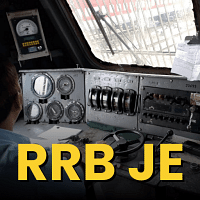Railways Exam > Railways Questions > Which scientist first discovered that Free fa...
Start Learning for Free
Which scientist first discovered that Free falling Object has same acceleration?
- a)Isaac Newton
- b)Galileo Galilei
- c)Richard Feynmen
- d)Max Planck
Correct answer is option 'B'. Can you explain this answer?
| FREE This question is part of | Download PDF Attempt this Test |
Most Upvoted Answer
Which scientist first discovered that Free falling Object has same acc...
Galileo Galilei - Discoverer of Same Acceleration for Free Falling Objects
- Background: Galileo Galilei was an Italian physicist, mathematician, astronomer, and philosopher who lived in the 16th and 17th centuries.
- Observation: Galileo was the first to conduct experiments to study the motion of falling objects. He observed that objects of different masses fall at the same rate when dropped from the same height.
- Acceleration Concept: Through his experiments, Galileo discovered that all objects, regardless of their mass, experience the same acceleration due to gravity when in free fall.
- Contributions to Physics: Galileo's work laid the foundation for the modern understanding of gravity and acceleration, paving the way for Isaac Newton's laws of motion.
- Legacy: Galileo's discovery revolutionized the field of physics and had a profound impact on the scientific community, leading to further advancements in the study of motion and gravity.
Attention Railways Students!
To make sure you are not studying endlessly, EduRev has designed Railways study material, with Structured Courses, Videos, & Test Series. Plus get personalized analysis, doubt solving and improvement plans to achieve a great score in Railways.

|
Explore Courses for Railways exam
|

|
Which scientist first discovered that Free falling Object has same acceleration?a)Isaac Newtonb)Galileo Galileic)Richard Feynmend)Max PlanckCorrect answer is option 'B'. Can you explain this answer?
Question Description
Which scientist first discovered that Free falling Object has same acceleration?a)Isaac Newtonb)Galileo Galileic)Richard Feynmend)Max PlanckCorrect answer is option 'B'. Can you explain this answer? for Railways 2024 is part of Railways preparation. The Question and answers have been prepared according to the Railways exam syllabus. Information about Which scientist first discovered that Free falling Object has same acceleration?a)Isaac Newtonb)Galileo Galileic)Richard Feynmend)Max PlanckCorrect answer is option 'B'. Can you explain this answer? covers all topics & solutions for Railways 2024 Exam. Find important definitions, questions, meanings, examples, exercises and tests below for Which scientist first discovered that Free falling Object has same acceleration?a)Isaac Newtonb)Galileo Galileic)Richard Feynmend)Max PlanckCorrect answer is option 'B'. Can you explain this answer?.
Which scientist first discovered that Free falling Object has same acceleration?a)Isaac Newtonb)Galileo Galileic)Richard Feynmend)Max PlanckCorrect answer is option 'B'. Can you explain this answer? for Railways 2024 is part of Railways preparation. The Question and answers have been prepared according to the Railways exam syllabus. Information about Which scientist first discovered that Free falling Object has same acceleration?a)Isaac Newtonb)Galileo Galileic)Richard Feynmend)Max PlanckCorrect answer is option 'B'. Can you explain this answer? covers all topics & solutions for Railways 2024 Exam. Find important definitions, questions, meanings, examples, exercises and tests below for Which scientist first discovered that Free falling Object has same acceleration?a)Isaac Newtonb)Galileo Galileic)Richard Feynmend)Max PlanckCorrect answer is option 'B'. Can you explain this answer?.
Solutions for Which scientist first discovered that Free falling Object has same acceleration?a)Isaac Newtonb)Galileo Galileic)Richard Feynmend)Max PlanckCorrect answer is option 'B'. Can you explain this answer? in English & in Hindi are available as part of our courses for Railways.
Download more important topics, notes, lectures and mock test series for Railways Exam by signing up for free.
Here you can find the meaning of Which scientist first discovered that Free falling Object has same acceleration?a)Isaac Newtonb)Galileo Galileic)Richard Feynmend)Max PlanckCorrect answer is option 'B'. Can you explain this answer? defined & explained in the simplest way possible. Besides giving the explanation of
Which scientist first discovered that Free falling Object has same acceleration?a)Isaac Newtonb)Galileo Galileic)Richard Feynmend)Max PlanckCorrect answer is option 'B'. Can you explain this answer?, a detailed solution for Which scientist first discovered that Free falling Object has same acceleration?a)Isaac Newtonb)Galileo Galileic)Richard Feynmend)Max PlanckCorrect answer is option 'B'. Can you explain this answer? has been provided alongside types of Which scientist first discovered that Free falling Object has same acceleration?a)Isaac Newtonb)Galileo Galileic)Richard Feynmend)Max PlanckCorrect answer is option 'B'. Can you explain this answer? theory, EduRev gives you an
ample number of questions to practice Which scientist first discovered that Free falling Object has same acceleration?a)Isaac Newtonb)Galileo Galileic)Richard Feynmend)Max PlanckCorrect answer is option 'B'. Can you explain this answer? tests, examples and also practice Railways tests.

|
Explore Courses for Railways exam
|

|
Suggested Free Tests
Signup for Free!
Signup to see your scores go up within 7 days! Learn & Practice with 1000+ FREE Notes, Videos & Tests.






















